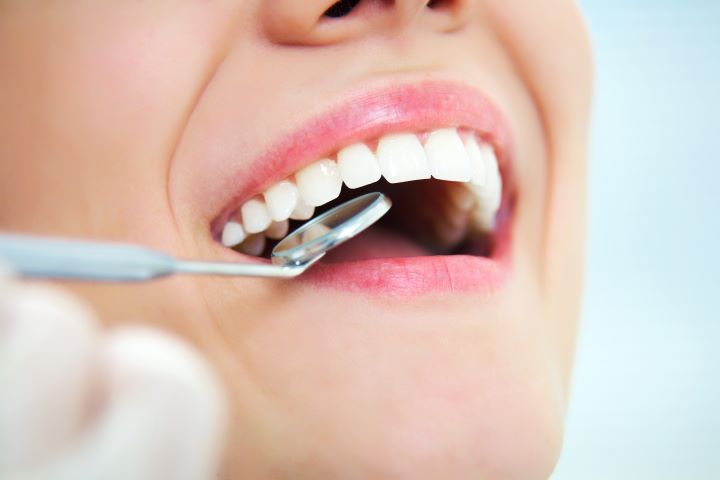Dental Implant Costs: Screwless Options and Full Mouth Solutions
Modern dental implant technology has evolved to include screwless options that offer improved comfort and aesthetics. Understanding the costs associated with different implant procedures, from single tooth replacements to full mouth restorations, helps patients make informed decisions about their oral health investment. Various factors influence pricing, including implant type, materials used, and geographic location.

Understanding Screwless Dental Implant Technology
Screwless dental implants represent an advancement in implant dentistry that eliminates the need for traditional screws to secure the crown to the implant post. This innovative approach uses alternative attachment methods such as cement retention or specialized locking mechanisms. The screwless design often provides better aesthetics since there are no screw access holes visible on the crown surface, particularly important for front teeth replacements.
The technology behind screwless implants focuses on creating a seamless connection between the implant fixture and the restoration. This method can reduce the risk of screw loosening, a common complication with traditional screw-retained implants. Patients often experience improved comfort and confidence with screwless options, especially in highly visible areas of the mouth.
The Screwless Implant Procedure Process
The screwless implant procedure follows many of the same initial steps as traditional implant placement. The process begins with a comprehensive examination, including digital imaging and treatment planning. During the surgical phase, the implant post is placed into the jawbone through a minimally invasive technique.
What differs significantly is the restoration phase. Instead of creating a screw access hole in the crown, the prosthetic tooth is designed to attach through cement bonding or specialized retention systems. This approach often requires precise measurements and custom fabrication to ensure proper fit and function. The healing period typically ranges from three to six months, allowing for complete osseointegration before the final restoration is placed.
Recovery from screwless implant procedures generally mirrors that of traditional implants, with patients experiencing minimal discomfort and swelling. Post-operative care instructions focus on maintaining oral hygiene while avoiding excessive pressure on the implant site during the initial healing phase.
Full Set of Teeth Implant Cost Considerations
The cost of a full set of teeth implants varies significantly based on several factors including geographic location, clinic reputation, and chosen treatment approach. Full mouth reconstruction typically involves either individual implants for each tooth or implant-supported dentures using fewer strategic implant placements.
All-on-4 or All-on-6 treatment concepts represent popular alternatives to individual implants for each missing tooth. These approaches use four to six strategically placed implants to support a full arch of teeth, often providing more cost-effective solutions while maintaining excellent function and aesthetics.
The complexity of each case influences the final investment required. Patients needing bone grafting, sinus lifts, or other preparatory procedures will see higher costs. Additionally, the choice of materials for the final restoration, such as porcelain, zirconia, or composite materials, affects the overall expense.
| Treatment Option | Provider Type | Cost Estimation |
|---|---|---|
| Single Screwless Implant | General Dentist | $3,000 - $4,500 |
| Single Screwless Implant | Oral Surgeon | $3,500 - $5,000 |
| All-on-4 Full Arch | Specialty Clinic | $15,000 - $25,000 |
| All-on-6 Full Arch | Specialty Clinic | $20,000 - $30,000 |
| Individual Implants (Full Mouth) | Comprehensive Center | $40,000 - $80,000 |
Prices, rates, or cost estimates mentioned in this article are based on the latest available information but may change over time. Independent research is advised before making financial decisions.
Factors Affecting Dental Implant Pricing
Several variables influence the final cost of dental implant treatment. Geographic location plays a significant role, with urban areas typically commanding higher fees than rural locations. The experience and specialization of the treating dentist also affects pricing, as board-certified specialists often charge premium rates for their expertise.
Material selection significantly impacts costs. Premium materials like zirconia or custom-milled restorations cost more than standard options but may offer superior aesthetics and longevity. Laboratory fees for custom prosthetics vary based on complexity and materials chosen.
Insurance coverage varies widely among providers and plans. While many dental insurance plans provide limited coverage for implants, medical insurance may cover portions of treatment when implants address functional issues. Patients should thoroughly review their coverage options and consider supplemental dental insurance when planning extensive implant treatment.
Long-term Value and Maintenance
Dental implants, including screwless varieties, offer excellent long-term value despite higher initial costs compared to traditional tooth replacement options. With proper care, implants can last decades, often proving more economical than bridges or dentures that require periodic replacement.
Maintenance requirements for screwless implants focus on excellent oral hygiene and regular professional cleanings. The absence of screw access holes can make cleaning easier in some cases, though patients must still maintain diligent home care routines. Regular dental checkups allow for early detection of any issues and help ensure long-term success.
The investment in quality implant treatment often pays dividends through improved oral health, enhanced confidence, and better overall quality of life. Patients frequently report significant improvements in their ability to eat, speak, and smile naturally after successful implant treatment.
This article is for informational purposes only and should not be considered medical advice. Please consult a qualified healthcare professional for personalized guidance and treatment.




